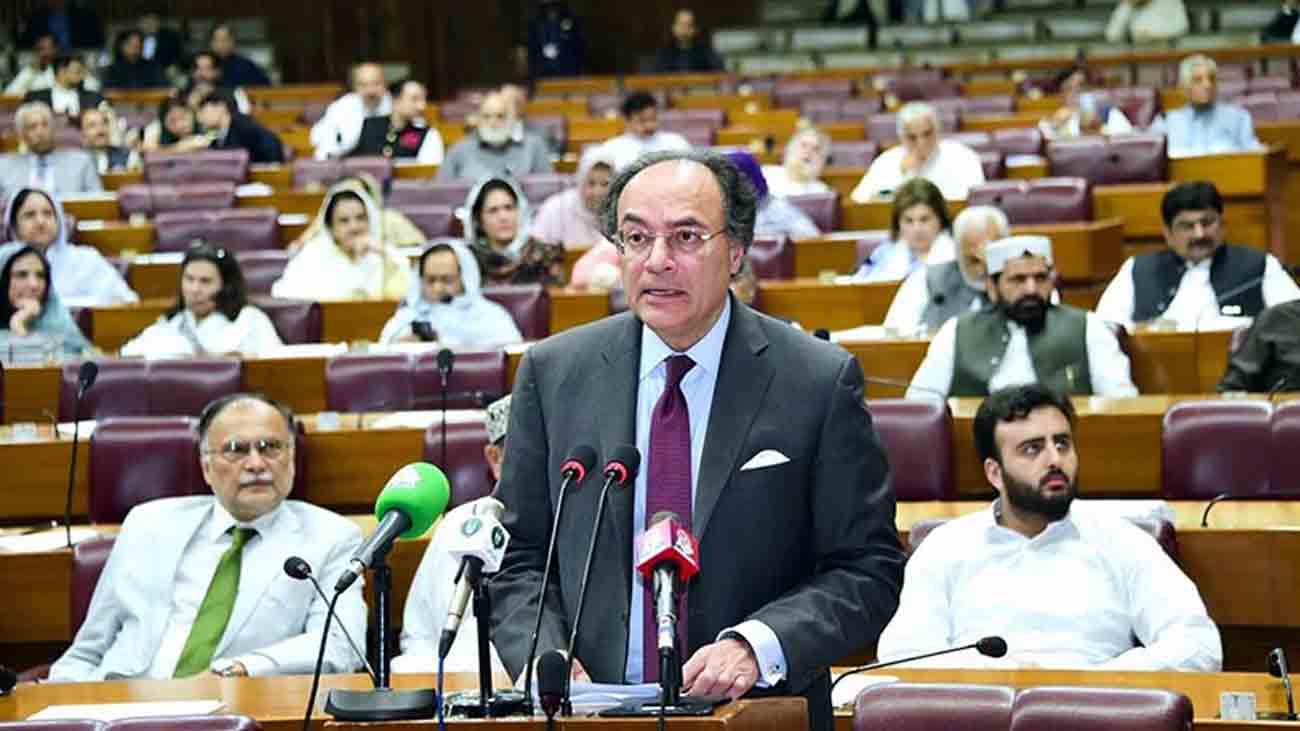
During the session the opposition severely criticised the budget and described it as IMF-driven and harmful to the people.
The opposition’s amendments regarding the levy were voted down in the Assembly, with 170 members opposing and 84 supporting the cut.
PTI Chairman Barrister Gohar and former Speaker of the National Assembly Asad Qaiser criticised the budget regarding project allocations and fund distribution in Khyber Pakhtunkhwa.
The criticism was responded by Prime Minister Shehbaz Sharif. The session was also attended by Pakistan Peoples Party (PPP) Chairman Bilawal Bhutto-Zardari, and Asifa Bhutto-Zardari participated in the proceedings.
In addition, amendments were passed to empower the Federal Board of Revenue (FBR) for sales tax audits, allowing its officials to access necessary records without demanding data older than six years.
Terming it growth budget, Minister of Finance Muhamamd Aurangzaib said it was based on a well-thought-out strategy to boost the national economy.
He said that the purpose of the budget was to narrow the fiscal deficit by expanding the government’s revenues and cutting unnecessary expenditures.
The finance minister reiterated the government’s commitment to increasing the tax-to-GDP ratio to 13 percent. Currently, it stands at a low 9.5 percent.
He claimed that the economic indicators, including the current account, fiscal deficit, inflation, and foreign exchange reserves, were stable and under control.
He said that the government had a plan to continue this economic stability into the next fiscal year, aiming to lead the country towards sustainable economic growth.
He said that tax evasion will be curbed to expand the tax net, particularly targeting retailers and the real estate sector. He noted that the current account deficit had decreased, the fiscal deficit was under control, and the country had foreign reserves of $9 billion, providing an import cover for two months.
He mentioned a significant cut in inflation, from 38 percent to 11 percent, and sustained food inflation at two percent. He said that no tax had been imposed on solar energy.
Omar Ayub, the Opposition Leader in the National Assembly, PTI Chairman Gohar Ali Khan and Sunni Ittehad Council leader Ali Muhammad said the stakeholders had not been taken on board during the formulation of the bill.
“The finance bill fails to address the critical economic challenges faced by the country and has been drafted without adequate consultation with key stakeholders,” Omar Ayub said.
Eearlier, the lower house of the Parliament took up agenda numbers seven and eight which are relevant to “The Finance Bill, 2024” for passage.
Also read: IMF welcomes tough economic decisions in Pakistan budget
Finance Minister Muhammad Aurangzeb presented “The Finance Bill, 2024” in the house for approval.
The finance minister laid the papers under Article 83 of the Constitution of Pakistan.
The papers are; (1) Schedule of Authorized Expenditure 2024-25, (2) Supplementary Schedule of Authorized Expenditure 2022-23 and 2023-24 and (3) Excess Schedule of Authorized Expenditure 2022-23.
The finance minister also presented for discussion and voting on Excess for Grants in respect of the expenditure other than charge upon the Federal Consolidated Fund for the financial years, 2022-23 and Charge Excess Expenditures for the financial year 2022-23.
More to follow…




